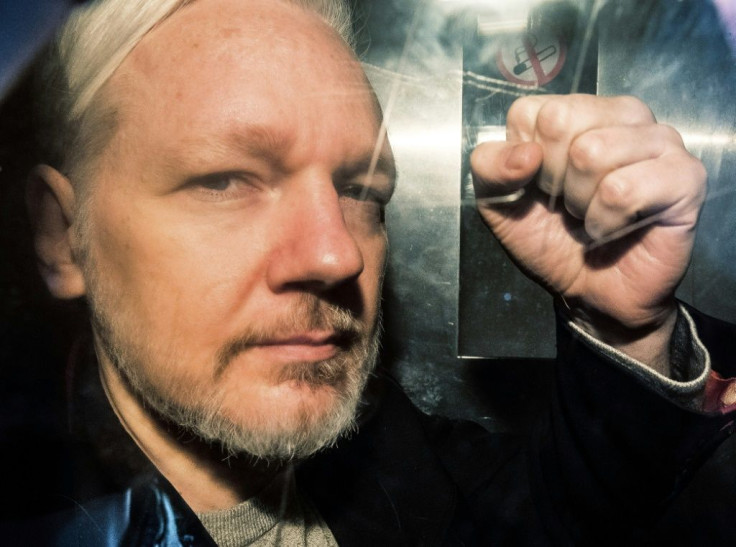Trump Offered WikiLeaks' Assange Pardon If He Covered Up Russian Hack Of Clinton
KEY POINTS
- Trump offered Julian Assange a pardon in a quid pro quo
- In exchange for the pardon, Assange was to absolve Russia of hacking the DNC computers
- Trump's offer was relayed by the pro-Russia ex-congressman Dana Rohrabacher
President Donald Trump in 2017 offered a presidential pardon to WikiLeaks founder Julian Assange if the latter declared Russia wasn't responsible for the 2016 hack and leak of emails from the Democratic National Committee (DNC) and Hillary Clinton.
The stunning revelation was made Wednesday at the Westminster Magistrates' Court in London by Assange's barrister, Edward Fitzgerald. During Assange's extradition hearing, Fitzgerald said his client wanted to submit evidence Trump offered him a pardon in 2017 through former U.S. Republican congressman Dana Rohrabacher from California.
Rohrabacher was a pro-Russia legislator in Washington until he lost is reelection bid in the 2018 midterms. He consistently defended Russian dictator Vladimir Putin and Putin’s Russia. Rohrabacher was on Trump's shortlist for Secretary of State along with Mitt Romney and eventual pick, Rex Tillerson.
Fitzgerald made the astounding assertion in seeking the court’s permission to admit a statement by Jennifer Robinson, a lawyer for WikiLeaks, who said she was present when Rohrabacher made the offer on Aug. 16, 2017 at the Ecuadoran Embassy in London. Also present at this meeting was was Charles Johnson, a conservative political activist. Part of Robinson’s statement was read in open court.
“Mr. Rohrabacher going to see Mr. Assange and saying, on instructions from the president, he was offering a pardon or some other way out, if Mr. Assange ... said Russia had nothing to do with the DNC (Democratic National Committee) leaks," said Robinson.
District Judge Vanessa Baraitser, who is hearing the case at Westminster, said the claim alleging Trump's offer to pardon Assange is admissible as evidence. The extradition hearing will begin at Woolwich crown court on Monday. After adjournment, the hearings will continue for three weeks starting May 18.

Trump invited Rohrabacher to the White House in April 2017 after seeing the latter on Fox TV defending him. In September of that same year, the White House confirmed Rohrabacher had called then chief of staff, John Kelly, to talk about a deal with Assange.
Rohrabacher said Assange would have to hand over a computer drive or other data storage device that proves Russia wasn't the source of the hacked Clinton emails.
“He would get nothing, obviously, if what he gave us was not proof,” said Rohrabacher to the Wall Street Journal.
Assange is fighting extradition to the U.S. He argues he acted as a publisher and journalist and claims the U.S. is pursuing him for “political offenses.” Assange is wanted in the U.S. on 18 charges (including conspiring to commit computer intrusion) over the publication of U.S. cables. He faces up to 175 years in jail if found guilty. He's also accused of working with the former U.S. Army intelligence analyst Chelsea Manning to leak classified U.S. documents to media.
The U.S. wants Assange to stand trial on charges he violated the Espionage Act by allegedly helping obtain and disseminate secret government documents in 2010 and 2011 relating to the wars in Iraq and Afghanistan.
© Copyright IBTimes 2024. All rights reserved.











